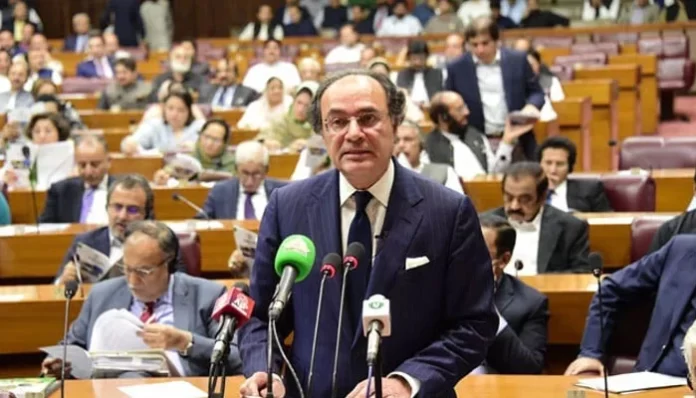The National Assembly on Thursday passed the Finance Bill 2025, giving legal effect to Pakistan’s federal budget for the fiscal year 2025–26. The bill, which carries a total outlay of Rs17.573 trillion, was adopted by a majority vote following a clause-by-clause reading and approval of government amendments.
Finance Minister Senator Muhammad Aurangzeb moved the motion in the lower house, which included key financial proposals to be implemented from July 1, 2025. All amendments submitted by the opposition were rejected.
The Pakistan Peoples Party (PPP), which had previously expressed concern over several provisions in the budget, ultimately endorsed the bill after the government accepted its recommendations. PPP Chairman Bilawal Bhutto Zardari said in the National Assembly that his party welcomed the increase in the Benazir Income Support Programme allocation and noted that lower-income salaried individuals had been given tax relief. He added that the government had also addressed the party’s suggestions regarding revenue matters.
Under the approved fiscal plan, the government has projected a GDP growth rate of 4.2 percent and an inflation target of 7.5 percent for the next fiscal year. The fiscal deficit is estimated at 3.9 percent of GDP, while the primary surplus is expected to reach 2.4 percent of GDP.
The Federal Board of Revenue (FBR) has been tasked with collecting Rs14,131 billion in revenues, reflecting an 18.7 percent increase compared to the previous year. Non-tax revenue is projected at Rs5,147 billion, and the federal government’s net income is expected to be Rs11,072 billion. Expenditures have been set at Rs17,573 billion, with Rs8,207 billion allocated for markup payments and Rs16,286 billion for total current spending.
The government earmarked Rs1,000 billion for the Public Sector Development Programme (PSDP), while the total volume of annual development plans across the country exceeds Rs4,000 billion. Significant sectoral allocations include Rs2,550 billion for defence, Rs971 billion for civil administration, Rs1,055 billion for pensions, and Rs1,186 billion in subsidies.
Support for social protection and regional allocations has also been strengthened, with Rs1,928 billion designated for the Benazir Income Support Programme and funding for Azad Jammu and Kashmir, Gilgit-Baltistan, and the newly merged districts of Khyber Pakhtunkhwa. The government aims to expand BISP coverage to 10 million beneficiary families, raising the programme’s budget by 21 percent to Rs716 billion.
Public sector employees in Grades 1 through 22 will receive a 10 percent salary increase, while pensions for retired employees will go up by 7 percent. Eligible staff will also see a 30 percent rise in the Disparity Reduction Allowance, and special relief has been included for military personnel.
The Finance Bill introduced several tax reforms, including relief for salaried individuals earning up to Rs1.2 million per year. Income tax for those earning between Rs600,000 and Rs1.2 million annually has been reduced to 1 percent. Pensions and gratuities remain tax-exempt except for pensioners drawing over Rs10 million annually, and individuals over 75 years of age are fully exempt from tax.
The bill also proposes new taxes aimed at high-income groups and businesses while protecting lower-income citizens. Export-oriented industries have been spared new taxes to maintain their global competitiveness. Additionally, the government announced forthcoming initiatives such as a new industrial policy, advancement in the electric vehicle framework, and long-term reforms in the energy sector.
Earlier this month, Finance Minister Aurangzeb had presented the budget in the National Assembly, highlighting a plan focused on fiscal consolidation, economic productivity, and sustainable growth. The 2025–26 budget represents a 6.9 percent decrease from the previous year’s outlay, while current expenditures have been reduced by 5.33 percent.




